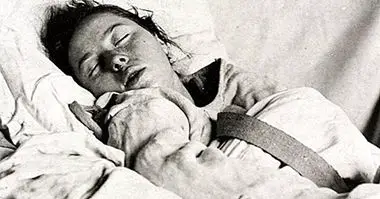The 5 most common myths about depression
It is a common fact experience a feeling of sadness or distress during certain episodes of life . The occasional appearance of these emotional states is part of our normal functioning and in most cases our body has no major problem to recover in a short time.
Five myths about people with depression
However, when we speak of depressive disorders we are referring to a set of various symptoms which can be expressed very differently depending on the case. Perhaps for this reason, most people have tended to internalize the concept of "depression" under a series of stereotyped labels about depressed people, to make their understanding easier.
This fact has contributed to a series of myths about depression which only serve to give a biased and unrealistic image of this phenomenon. Here we present some of these myths or stereotypes that purport to describe people with this mood disorder .
Common prejudices about people with depression
1. People with depression are always sad
It is true that The diagnosis of depression includes a feeling of sadness that remains in time , but this does not have to be the case in all cases. Some people with depression are in a state of emotional flattening, which means they do not experience any particular emotion, or to a very low degree. It is also frequent that anhedonia occurs, that is, the inability to experience sensations of pleasure, without this implying falling into a state of deep sadness.
2. People with depression are affected by a traumatic event
Sometimes depression is triggered by a situation that is perceived as very negative, such as the death of a loved one or the loss of a job , but Is not always that way . Sometimes, people with depression are unable to recognize an external event that has caused the manifestation of this disorder. There may be cases in which a person with depression seems to have all the material conditions to live happily: money, good luck, many friendships, etc.
3. Depression occurs as a result of unwise decisions
This myth is a continuation of the previous one, and that is precisely why it is just as wrong. People with depression are not because of "having made a mistake in life", simply they are by several factors that are intertwined in a very complex way . Blaming these people for the disorder they experience is perverse and is a major mistake.
4. Depression is a sign of weakness
Depression, like many other forms of mental disorder, is strongly stigmatized Even today. It is possible that part of the reasons why this continues to happen is the cult to happiness that has become popular with the consolidation of welfare societies. Apparently we are all capable of aspiring to happiness and whoever does not get it is showing weakness, likes to revel in the misfortunes that happen to him and throws in the towel before his time.
Sadness has been characterized as well as the opposite face of happiness and is something that should be avoided at all costs: the ideal is never to be sad. Evidently, this myth leads to confusion between sadness and depression , besides starting from a fundamentalist vision of what happiness is. Unfortunately, it also blames people with depression in favor of an unrealistic way of life.
5. Depression has only effects on the mind
It is always confusing to speak of "mind" without clarifying what this word refers to, but in spite of this it is quite common that depression affects only the mood of the people and their way of seeing things. To sustain this idea is, in fact, make much of the effects of depression on the whole organism invisible , and they are not few: problems of stress, sleep and digestion, pains in various areas of the body, fatigue, etc. Depression is not just the maintenance of a state of mind, but also includes biological processes that run throughout the body and affect each other.




















